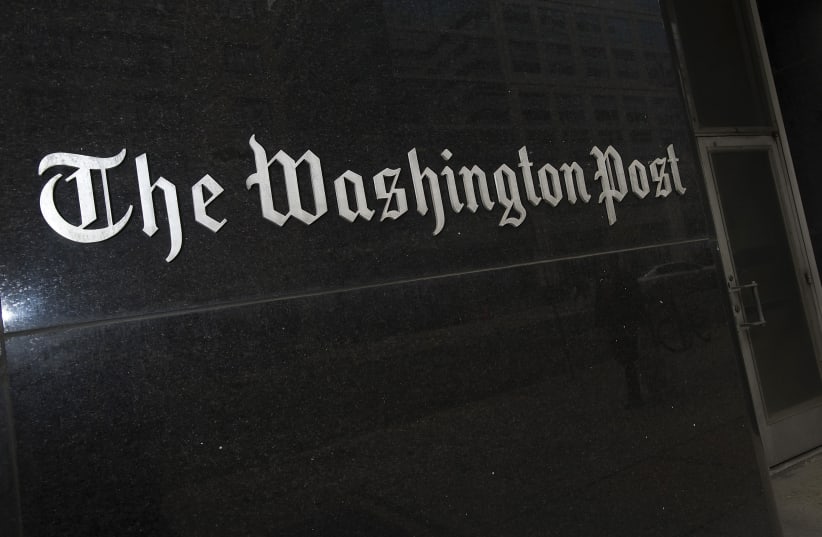Turkey’s Foreign Minister Mevlut Cavusoglu accused The Washington Post of “terrorist propaganda” on Thursday after the newspaper ran an oped by Kurdistan Workers Party senior leader Cemil Bayik.
Turkey has in the past sought to run oped by its own leaders and officials, but was outraged when an oped appeared this week titled ‘now is the moment for peace between Kurds and the Turkish state, let’s not waste it.” The newspaper has been critiqued in the past for publishing an oped by the head of the Houthi rebel group, a group that openly espouses antisemitism. It has also been critiqued by some Kurdish activists for running opeds by Turkish officials. Kurds are outraged by Turkey’s actions in eastern Turkey, in the Kurdish area of Afrin in northern Syria and also by Turkey’s airstrikes in northern Iraq.
This is part of a larger conflict between Turkey and the PKK that grew after a ceasefire broke down in 2015. Turkey sees the PKK as a terrorist organization with which it has fought for decades. In 1999 PKK leader Abdullah Ocalan was captured in Kenya in an operation by Turkish intelligence. The New York Times reported at the time that US officials assisted Turkey in its hunt for Ocalan, from Syria to Greece to Kenya. A ceasefire and changes in Turkey’s government appeared to lead to a opening to peace and increased role for a spectrum of Kurdish activists in Turkey in the 2000s. However things changed in 2015 as Turkey and the PKK both watched developments in Syria.
The Syrian Kurdish People’s Protection Units (YPG) helped push back and defeat ISIS offensives in 2014 with US support. As the US upped support for Kurdish fighters in eastern Syria the YPG helped form the Syrian Democratic Forces (SDF). Turkey says the YPG is closely linked to or controlled by the PKK’s leadership. From Ankara’s point of view the growth in YPG and SDF power in Syria, with US support, had ramifications across the border. After the 2015 ceasefire broke down Turkey’s leading AKP party was also concerned that the leftist People’s Democratic Party (HDP) had grown its seats in parliament. Turkish right wing media accuses the HDP of being linked to the PKK. Thus in Ankara’s view the PKK was making inroads not only in Syria but also in Turkey and in other places like northern Iraq where it has bases.
In November 2018 the US offered rewards up to $12 million for information leading to three PKK leaders, including $4 million for Cemil Bayik. The November US announcement came amid a crises between the US and Turkey. Turkey has sought to purchase the Russian S-400 air defense system, jeopardizing Turkey’s role in the US F-35 program. This would harm an alliance and NATO relationship going back half a decade. The US and Turkey had also run into troubles after Turkey detained a US pastor following a 2016 coup attempt.
Now Bayik has published an oped at one of America’s leading newspapers. Turkey is livid. Cavusoglu instructed Turkey’s UN Ambassador Feridun Sinirlioglu to lodge a complaint with the UN over the oped. “This is a double standard and hypocrisy on counter terrorism,” the minister said. He said the publishing the oped was “terrorist propaganda.” Turkey has said that the oped does not fall under freedom of expression.
In the past Turkey has received positive coverage and also oped from The Washington Post in the wake of the murder of former Sauid insider Jamal Khashoggi in Turkey in October 2018. Turkey and others have asserted that Saudi leadership planned his murder in the Saudi consulate. But Turkey’s view is that publishing a PKK leader is an oped beyond the pale. Turkey has been criticized for arresting journalists at home and several high profile journalists, such as Can Dundar, who now lives in exile. The Committee to Protect Journalists said in December 2018 that Ankara remains the largest jailor of journalists in the world, with 68 imprisoned in Turkey last year.
